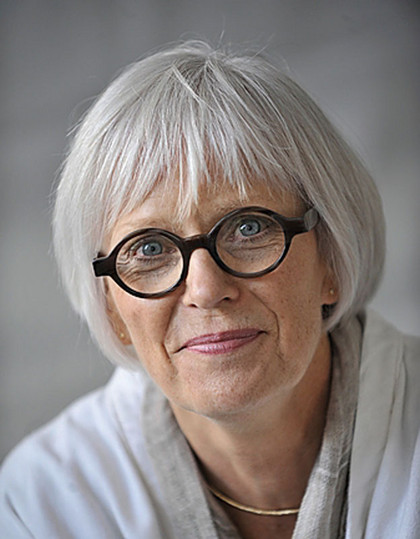
La renaissance du garde-manger

Lorsque le prêtre protecteur se mue en agresseur

Virage à droite et recette des röstis

La lutte des continents

Depuis le oui du peuple suisse à l’initiative contre l’immigration de masse, en février, notre gouvernement, le parlement, les partis politiques et de nombreux spécialistes adoptent un comportement susceptible de donner le vertige. La question autour de laquelle tout s’articule est de savoir comment mettre en œuvre l’initiative contre l’immigration de masse sans nuire à l’économie et à la réputation de la Suisse.
Les vainqueurs de la votation du 9 février y répondent ainsi: seule est envisageable une mise en œuvre «conséquente». Ils prétendent que l’UE cédera bien au diktat de la Suisse si cette dernière procède avec suffisamment d’astuce. L’initiative doit être mise en œuvre «intelligente», affirment d’autres, notamment au centre de l’échiquier politique. Toutefois, personne n’explique ce qu’«intelligente» signifie concrètement. En fait, on s’en remet visiblement à une certaine forme d’espoir. Sans oublier, au final, le groupe qui se dit convaincu que l’initiative de l’UDC ne peut être mise en œuvre sans rendre caducs les contrats bilatéraux avec l’UE. Un cas dans lequel deux choses sont claires: la situation deviendrait extrêmement désagréable pour la Suisse et la décision appartiendrait au peuple.
Dans son analyse de la démocratie américaine de 1835, le philosophe politique français Alexis de Tocqueville met en garde contre la «tyrannie de la majorité». En Suisse, le système politique et de votations évoque de plus en plus souvent une tyrannie de la minorité. Car une majorité de voix aux urnes – si l’on considère le taux de participation aux scrutins – ne correspond de loin pas à la majorité du peuple. Un sondage effectué en septembre par l’institut bernois de recherche gfs a révélé que 58% des Suissesses et Suisses privilégieraient les contrats bilatéraux par rapport à l’initiative contre l’immigration de masse. Un résultat qui laisse supposer qu’avant la votation, une majorité n’avait pas vraiment saisi les conséquences de cette décision. On peut également en déduire que dans une campagne de votation, un parti disposant de moyens financiers importants et d’un appareil fonctionnant à la perfection peut instrumentaliser la démocratie.
Il n’en reste pas moins certain qu’un autre scénario électoral calqué sur le même modèle attend la Suisse. «Le droit suisse prime le droit étranger», tel est l’intitulé de l’initiative populaire échafaudée par les délégués de l’UDC le 25 octobre. Elle a pour objectifs de donner priorité au droit national par rapport au droit international et de démanteler la Convention européenne de sauvegarde des droits de l’homme et des libertés fondamentales.

Le positionnement de la Suisse en Europe et au sein de la communauté internationale en devient un sujet essentiel de l’année électorale 2015. Telles sont les questions qui se posent: la Suisse est-elle un cas particulier? Mérite-t-elle, au vu de son unicité, un traitement particulier? Ou encore: les décisions populaires sont-elles toujours judicieuses? Le peuple ne peut-il jamais se tromper? Vous trouverez à partir de la page 12 un aperçu étayé de l’année électorale, de ses thèmes principaux et des positions des partis.
Comments
Comments :
- Jemand, der in der 6.Klasse die Primarschule abgeschlossen hat
- Jemand, der seine politische Einstellung aus der Sensationspresse,
oder schlimmer noch aus der hirnrissigen Polemik eines Politikers
ableitet
HAT IN EINEM ABSTIMMUNGSLOKAL NICHT, ABER AUCH GAR NICHTS VERLOREN
"Wir wüssten eigentlich welches Massnahmen eingeleitet sein sollten um aus kritischen Situationen führen zu können. Stattdessen sind wir eingekesselt von Halbprofessionellen (lasse mal die Berufsbezeichnung weg) welche sich von voreingenommenen Gremien zu Höchstpreisen beraten lassen.
So fallen denn auch die Resultate aus."
Dabei wird doch immer wieder zum Ausdruck gebracht dass Fachleutemangel herrscht. Denke mir mal meine Sache und höre lieber diesen Profis zu als mich von Massengeschrei ablenken zu lassen.
Eines ist noch zu sagen. Anstelle bei Top-Kaderlöhnen und Pensionen oder Bonis, wäre es vielleicht einmal angebracht eine Leistungsvergütung im Sinne von (%) Prozenten der erreichten Ziele auf eine Zeitspanne verteilt zu entrichten. Wer total daneben entscheidet hat eben das totale Minimum einer Maximalgrutschrift zu erwarten.
Wo dabei die Gerechtigkeit liegt? Anstelle von einem Minimum erhält die/der Normalangestellte meist den Rausschmiss. An anderer Stelle erhalten Personen einen Sitz in einem Vorstand.
Sind also beruflich aktiv und zusätzlich kommt eine Pension ins Haus.
Unter Demokratie verstehe ich etwas anderes als das was in "direkt" Bezeichnung findet. Zur Erklärung einer Denkweise ist zu bemerken das weder als Kapitalist noch als Komunist gewertet als auch gewirkt werden sollte. Sprechen wir lieber von materiealistisch. Denn aus materiellen Dingen besteht jedes Lebewesen wie auch jeder Gegenstand. Wobei das geistige übergeordneten Rang behält.
Das Lebende demzufolge hat gegenüber dem Materiellen eine Verantwortung zu tragen. Diese wird zu oft nicht gelebt, Oder dann ausgehebelt und umgangen.
Zuvor gemachte Kommentare respektierend, möchte ich zum Ausdruck bringen, dass die Schweiz an gewissen Stellen ein sehr schönes Land ist. Zu schön, als irgendwelchen Ideologien zum Opfer fallen zu lassen.
http://www.dailymail.co.uk/news/article-2873855/Gunman-takes-hostages-cafe-Sydney.html
Read the offenders history and be thankful that you in Switzerland have the power to stop your government from ruining your society.
The most wonderful thing of all about Switzerland is that, through direct democracy, the Swiss have the power to stop government from destroying their society, and that is why Switzerland is the envy of the world. Naturally, there will be an element within Swiss society who resent the fact that they cannot force their views on everyone else, but, fortunately, the Swiss democratic system prevents this from happening. In contrast, in my home country, Australia, we truly have a 'tyranny of the minority'. The media, academia, the public service and the institutions of the country are predominantly leftist and they tightly control the political agenda, ensuring ordinary people have little or no say in national policy. As a consequence, our society and our economy are in decline. Some examples of this are:
- successive government have used mass immigration to bring large amounts of new money into the economy to boost economic growth. Mass immigration boosts demand for real estate and consumer goods and this creates the illusion of prosperity. This has been done without regard for the infrastructure problems it causes in the medium to long term or for the social tensions, crime and violence, including terrorism, it brings into the country. It should be emphasised that governments have done this deliberately for the sole purpose of giving the economy a quick, artificial boost to help them win an election. We have no power to stop this from happening as all the major parties are practising this deception.
- governments are giving foreigners pretty much a free hand to buy real estate in Australia. Where restrictions apply, these can be circumvented with ease. This forces prices up for locals and reduces the rental stock. All political parties do it as it is a sneaky way of bringing a lot of cash into the country quickly, again to create the illusion of economic prosperity. Again, we have no power to change this.
- successive governments have created poverty by inducing people into welfare dependency. One example of this is that in a country of around 23 million people, we have 800,000 people on a disability pension at a cost of $17 billion a year to the taxpayer. Our welfare system has given us an entrenched underclass of angry marginalised people. One consequence of this has been an explosion in anti-social behaviour. For example, when I was a child we used to holiday every Christmas at a beach resort known as the Gold Coast. Every evening the whole family would go for a walk along the beach to enjoy the cool night air. The only risk was that of tripping over the fishing lines of the many fisherman on the beach. Come forward to today and you risk being bashed and robbed if you walk on the beach at night. Perhaps worse, the drunks, drug addicts and troublemakers bury broken glass and syringes on the beach in the hope of injuring someone. It is such a serious problem that many local governments now run sieves across the beaches very early in the morning before people come out to use them.
So, enjoy what you have and be thankful that you have the power to stop politicians from making self-serving decisions that cause great harm to your country.